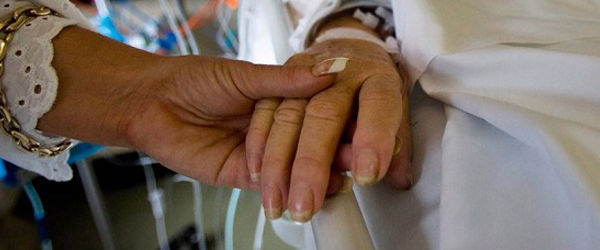I grew up the oldest of seven children in an Irish Catholic family. We certainly did our share to fill the pews on Sunday, but my participation in the Church was largely perfunctory well into my adulthood. This state of affairs reflected a certain spiritual immaturity, to be sure, but it also stemmed from Church culture at the time, when many of us assumed it was enough to “pray, pay and obey.” That was then, this is now. In the wake of Vatican II, the doors have swung open to much greater lay participation in numerous areas of ministry ranging from schools, hospitals and international relief efforts, to grief support, financial counseling and environmental stewardship. The Second Vatican Council very clearly laid out the proposition that all laity are called through baptism to discipleship, evangelization and service, and the Church hierarchy has continued to urge the laity to embrace these responsibilities. In recent decades, the number of organizations engaged in lay formation has grown exponentially as lay persons are recognizing and accepting the calls God has placed on their hearts.Certainly the internal crises of the Catholic Church, including the drastic decline in the number of clergy, have also contributed to the increased role and participation of the laity. Today, one in seven parishes no longer has a resident priest, and almost half our parishes share their pastor. There are also many fewer religious leaders at thousands of schools, colleges, hospitals and clinics run by the Church. It would be a mistake, however, to attribute enhanced lay engagement primarily to the shortage of priests and nuns; when Vatican II cast its vision for the laity, vocations were plentiful. Rather, the impetus for lay involvement stems from the consistent affirmation by the Church hierarchy that lay persons play a vital role in the life of the Church.Regrettable as the diminution in vocations is, we must interpret it through the eyes of faith and ask ourselves where God might be at work. Why did the decline in vocations occur in the years after the Church fathers urged more lay engagement? There are many reasons, yet I cannot help but see this as an example of how, in the words of St. Paul, “all things work together for the good of those who love God.” As God’s hands and feet on earth, our mandate for the 21st century is clear: The role of the new laity is to transform the world, step by small step, with the love of Christ.In my view, God has turned demographic necessity into a means of grace. We can rejoice that:—There are now abundant opportunities for the faithful to serve and engage with their neighbors in varied and substantial ways. By bringing the transformational power of the Gospel to people who desperately need it, we live out our baptismal call to be instruments of God’s love and peace. —Many Catholics, in seeking to serve Christ by serving others, are finding a new freedom. They are less bound by their own self-interest and more open to God’s will for them. Consequently, they experience a confident new joy in their lives.—Through training programs and more focused spiritual formation, lay persons have greater resources to develop their interior lives and to better “put on the mind of Christ,” thus slaking their own spiritual thirst as well as serving more effectively. Our impact for God is directly related to our intimacy with God.—Greater lay engagement in service to others and in parish leadership invests us with a renewed sense of who we are as Catholics, and of what we can accomplish with God’s grace.This last point is particularly salient to Catholics as we emerge from the recent sex abuse scandals. While the Church must acknowledge its myriad failures, we must also be mindful of what God enables us to do well, and thankful for his evident graces. We should not forget the incalculable good the Church has done over the past 2,000 years in numerous areas.Indeed, the quality and scope of the Church’s charitable endeavors around the world is unsurpassed by any other institution, and the increasing role of the laity in carrying out these good works is undeniably salutary. There are practical reasons why this is so, of course, as more lay involvement extends the Church’s reach and brings new expertise to bear on the tasks at hand. Greater lay engagement also advances the vision of the Second Vatican Council which explicitly urges that the lay apostolate be broadened and intensified to enable all Catholics to fulfill their baptismal call. So we have much to celebrate and we need to do so. By turning our attention in a spirit of humility and gratitude to what God has accomplished through the Church, we honor Him and give credence to His promise to renew all things in Christ.God works His purposes out in history, and as the Bible makes abundantly clear, He works through the weak as well as the strong. Ordinary Catholics can make extraordinary contributions to the life of the church. As God’s hands and feet on earth, our mandate for the 21st century is clear: The role of the new laity is to transform the world, step by small step, with the love of Christ. It’s a long way from “pray, pay and obey.” But in this we can persevere with confidence and hope, because we already know the end of the story.William E. Simon, Jr. is co-author with Michael Novak of “Living the Call: An Introduction to the Lay Vocation” (EncounterBooks, 2011).

